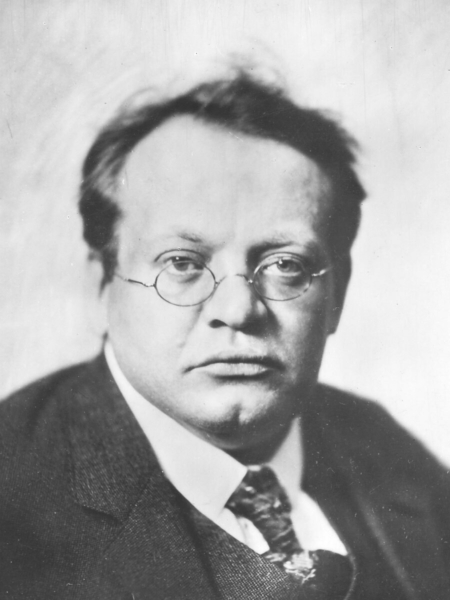Max Reger (1873–1916)
Andauernde Berühmtheit erlangte Max Reger vor allem durch seine Orgelwerke, obwohl er auch in den Bereichen der Kammermusik, der Lieder, der Chor- und der Orchesterkomposition Bedeutendes geleistet hat.
Max Reger, geboren am 19. März 1873 in Brand in der Oberpfalz, wächst in der nahe gelegenen Stadt Weiden auf und erhält schon früh musikalische Unterweisung.
Nach Studien bei dem berühmten Musiktheoretiker Hugo Riemann erleidet Reger in Folge seiner Militärdienstzeit und beruflicher Rückschläge einen nervlichen und physischen Zusammenbruch und kehrt 1898 ins Elternhaus zurück.
Dort steigert sich Regers Produktivität enorm, bis er 1901 seine Familie überreden kann, nach München zu übersiedeln, wo er mehr musikalische Anregungen erhofft als in der Oberpfalz. 1902 heiratet Reger, selbst Katholik, Elsa von Bercken, eine geschiedene Protestantin, was seine Exkommunikation zur Folge hat.
Kompositorisch wie als konzertierender Pianist ist Reger äußerst produktiv. 1905 wird er als Nachfolger Rheinbergers an die Akademie der Tonkunst berufen, legt sein Amt aber bereits ein Jahr später wegen Unstimmigkeiten mit dem überwiegend konservativen Lehrkörper nieder.
Während eines Konzertaufenthalts in Karlsruhe empfängt Reger 1907 seine Berufung zum Universitätsmusikdirektor und Professor am Königlichen Konservatorium in Leipzig; Konzert- und Kompositionstätigkeit behält er bei. Während er schon 1908 den Posten des Universitätsmusikdirektors wieder aufgibt, übernimmt er 1911 stattdessen den Posten des Hofkapellmeisters in Meiningen, den er bis Anfang 1914 innehat.
Die intensive Kompositions- und Konzertiertätigkeit führt er auch fort, nachdem er 1915 nach Jena gezogen ist, von wo aus er einmal wöchentlich für seine Lehrveranstaltungen nach Leipzig fährt. Auf einer dieser Reisen erliegt Reger im Mai 1916 einem Herzversagen.
(Max-Reger-Institut, aus dem Booklet zu „Max Reger - Das gesamte Orgelwerk, Vol. 1“, CD Oehms Classics, 2012)
Am 19. März 2023 jährte sich zum 150. Mal der Geburtstag von Max Reger.









